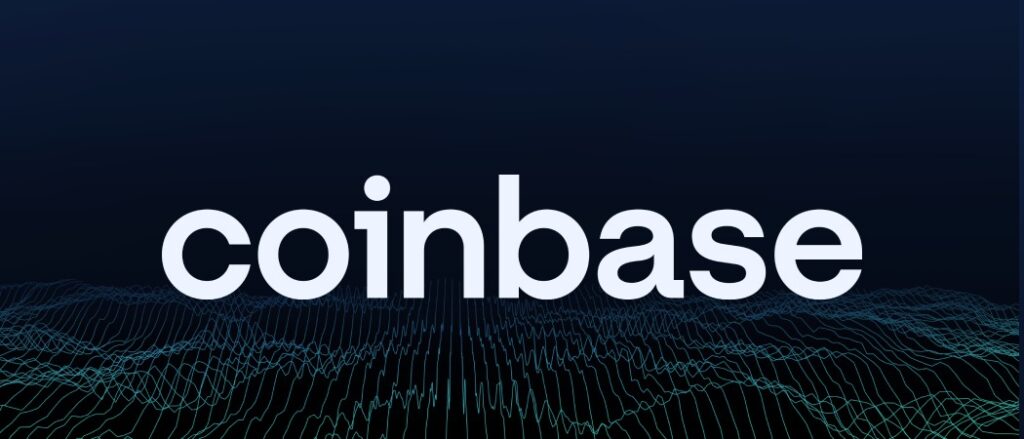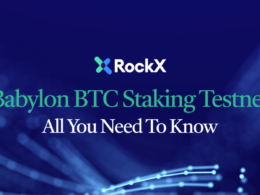Proof-of-Stake (PoS) is a popular consensus mechanism many cryptocurrencies like Ethereum, Cardano, and Polkadot use to validate transactions and create new blocks on their blockchain. And unlike Proof-of-Work (PoW), which requires miners to solve complex mathematical problems to validate transactions and earn rewards, PoS allows validators to create new blocks and earn rewards based on their ownership or stake in the cryptocurrency.
In a PoS system, validators must lock up a certain amount of the cryptocurrency as collateral to participate in the network and validate transactions. The more cryptocurrency a validator holds, the higher their chances of being selected to create the next block and earn the associated rewards. This incentivises validators to act in the network’s best interest, as any malicious behaviour could result in their stake being slashed or confiscated.
With more and more crypto using PoS as their consensus mechanism, it is expected to play an increasingly important role in the sector as it becomes more widely adopted and concerns over the environmental impact of PoW grow.
But while there is a consensus among regulators that PoW-based Bitcoin (BTC) is a commodity and subject to regulation under the CFTC, the same cannot be said of PoS tokens.
There has been an ongoing debate over whether PoS tokens should be considered securities or commodities. While it has been a hot topic in the regulatory world for some time now, recently, Securities and Exchange Commission (SEC) Chairman Gary Gensler weighed in on the matter, stating that PoS tokens that use the staking protocol could be considered securities.
The Case for PoS Tokens as Securities

The argument that Proof-of-Stake (PoS) tokens are securities centres around the fact that token holders receive profits from staking. Staking involves token holders locking up their tokens in a protocol, and in return, they receive rewards, usually in the form of more tokens. These rewards are typically a percentage of the total amount staked, and they vary depending on the protocol and the amount of tokens staked.
According to SEC Chairman Gensler, the fact that investors anticipate a return on their investment from staking means that PoS tokens can be considered securities.
Gensler believes that any investment opportunity that involves the expectation of a return falls under the definition of security and must be registered under US law.
Moreover, Gensler noted that the small group of entrepreneurs and developers who develop PoS protocols could be seen as intermediaries who must comply with securities laws. And in his view, the intermediaries that operate the PoS protocols must register their offerings under the Securities Act, and the tokens must be registered under the Securities Exchange Act to avoid running afoul of US securities laws.
This is not the first time Gensler has expressed his opinion on the need to control most cryptocurrencies on the market except for Bitcoin. He has previously stated that US securities laws may govern PoS protocols.
To determine whether certain transactions are considered investment contracts or not, the SEC uses the Howey Test. Under this test, investment contracts are created when an investment has been made with a reasonable expectation of profits from the efforts of others.
In the context of PoS tokens, crypto holders stake their coins to help validate blocks on the network. In some cases, these stakers may be able to earn a financial return in exchange for staking their tokens. However, the key question is whether or not staking these tokens constitutes an investment contract, according to the Howey test.
If staking the tokens involves entrusting them to third-party validators with the promise of a financial return, then it is possible that the staking arrangement could be considered an investment contract.
Gensler’s argument is not without precedent either. In a lawsuit against crypto exchange KuCoin, the New York Attorney General (NYAG) claimed that Ether is an unregistered security, and its founders, including Vitalik Buterin, have infringed securities laws in the United States. The lawsuit contends that Ether’s creation and distribution were conducted in a manner consistent with the characteristics of a security offering.
The SEC has also taken action against cryptocurrency exchange Kraken in the past for failing to register the offer and sale of their crypto-asset staking-as-a-service program, which the commission qualified as securities.
The Case Against PoS Tokens as Securities

In contrast to SEC and NYAG’s views that crypto is security, the US Commodity Futures Trading Commission (CFTC) Chairman Rostin Behnam stated that Ether is a commodity, not a security. He said that the CFTC did the analysis and concluded that Ether is a commodity.
Behnam’s statement implies that the regulation of Ether would fall under the jurisdiction of the CFTC rather than the SEC.
This makes sense, given that staking is not just an investment where people deposit money and expect returns for free. In fact, staking can be considered as “work” because staked tokens help a blockchain function.
When someone stakes their tokens, they are essentially locking them up in a smart contract for a period of time. These staked tokens then become collateral that helps secure the blockchain network and enable transactions to take place. In return for this service, users are rewarded with additional tokens.
This way, staking becomes an essential aspect of PoS blockchains, as it incentivises users to hold and support the network, improving the overall security and efficiency of the blockchain. This is because PoS blockchains are designed to reward users with a long-term commitment to the network, as opposed to PoW blockchains, where miners are incentivised to solve complex mathematical problems and earn rewards.
Furthermore, staking differs from traditional securities because staking rewards are not guaranteed. In traditional security, the issuer promises a fixed rate of return, but staking rewards are dependent on network activity and participation. Also, staking does not give users ownership rights in the traditional sense, as they are rather rewarded for their contribution to the network.
The thing is, problem with staking arises when people entrust their coins to a third-party validator. This could be considered to be entering into an investment contract and hence be subject to regulatory scrutiny. For those staking PoS tokens like ETH on their own node, there should be no risk involved as they are not entrusting their tokens to a third-party validator.
Coinbase’s Stance on Staking Services

While the SEC has been cracking down on staking services offered by centralised providers, the publicly-traded Coinbase (COIN), the largest cryptocurrency exchange in the US, has reassured its customers that it will continue to offer its staking services.
“Your staked assets will continue earning rewards. If you want to continue staking, no action is required. Your staking rewards may increase,” said the exchange in a customer email earlier this month.
Coinbase further explained its updated staking terms and conditions, which will come into effect from March 29. The updated terms clarify that users earn rewards from the decentralised protocols, not directly from the exchange. Coinbase is a service provider connecting users, validators, and the protocol.
The clear distinction between protocol rewards and service provision looks to avoid any grey area issues that may arise. This is in contrast to the recent $30 million settlement paid by Kraken for allegedly failing to register its staking-as-a-service program with the SEC.
One important aspect of the SEC’s complaint against Kraken was that users lost control of their tokens when using the staking program, which Coinbase argued is what makes it fundamentally different from Kraken’s staking service.
Coinbase CEO Brian Armstrong has stated that the firm would defend its position in court “if needed.” Coinbase’s clear distinction between protocol rewards and service provision is a step towards avoiding regulatory issues and ensuring that customers can continue using its staking services without disruption.
About a week ago, Coinbase also petitioned the SEC requesting that PoS tokens shouldn’t be considered a security. The petition, titled “RE: Petition for Rulemaking – ‘Proof-of-Stake’ Blockchain Staking Services,” is an 18-page document that argues that some staking services do not meet the definition of investment contracts and, therefore, should not be classified as securities.
Coinbase’s petition argues that staking is not a monolithic operation concept and that some models to date could fall under the definition of “investment contract offerings,” while others clearly do not. Coinbase also argues that basic staking services would not be investments, as users simply temporarily give up the alternative use of their tokens and retain full ownership of them.
The issue is complex and still open, with the SEC seemingly wanting to start negotiations from a stronger position than it would have had without this overreach.
However, unlike custodial solutions like Coinbase and Kraken, staking services like RockX are non-custodial, meaning they do not hold or have control over user funds. Instead, they act as a facilitator, connecting users to blockchain networks and allowing them to participate in the staking process.
By operating in this manner, staking services can comply with relevant regulations, as they do not hold user assets or funds. This is in contrast to centralised staking providers, which may be subject to additional regulatory requirements and oversight due to their role as custodians of user assets.
Non-custodial staking services provide a secure and reliable way for users to participate without worrying about the security and custody of their assets. Instead, users can rely on the security and transparency of the underlying blockchain network while benefiting from the rewards and other benefits associated with staking.
Conclusion

The debate around whether PoS tokens should be classified as securities or not has been ongoing. The differing opinions on the regulatory treatment of PoS tokens from the SEC and CFTC only cause confusion for market participants. And this debate is likely to continue in the coming years.
Those in favour of classifying PoS tokens as securities argue that investors purchase PoS tokens with the expectation of earning rewards, which is similar to receiving dividends from owning shares in a company. Also, the value of PoS tokens is closely tied to the success of the underlying blockchain, making them similar to stocks.
Meanwhile, those against classifying PoS tokens as securities argue that any central authority that does not back PoS tokens has a distinct purpose and fundamentally differs from securities.
In conclusion, we believe that staking is not an investment but rather work that contributes to the functioning of a blockchain. PoS tokens are unlike traditional securities since they do not confer ownership rights or promise passive returns. Instead, staking involves actively participating in the network and contributing to its security and maintenance.
While the value of PoS tokens is tied to the success of the underlying blockchain, the rewards received through staking are earned by performing useful work rather than simply holding an asset. Therefore, we believe that PoS tokens should not be classified as securities but rather as a unique asset class that serves a critical role in the functioning of blockchain networks.









